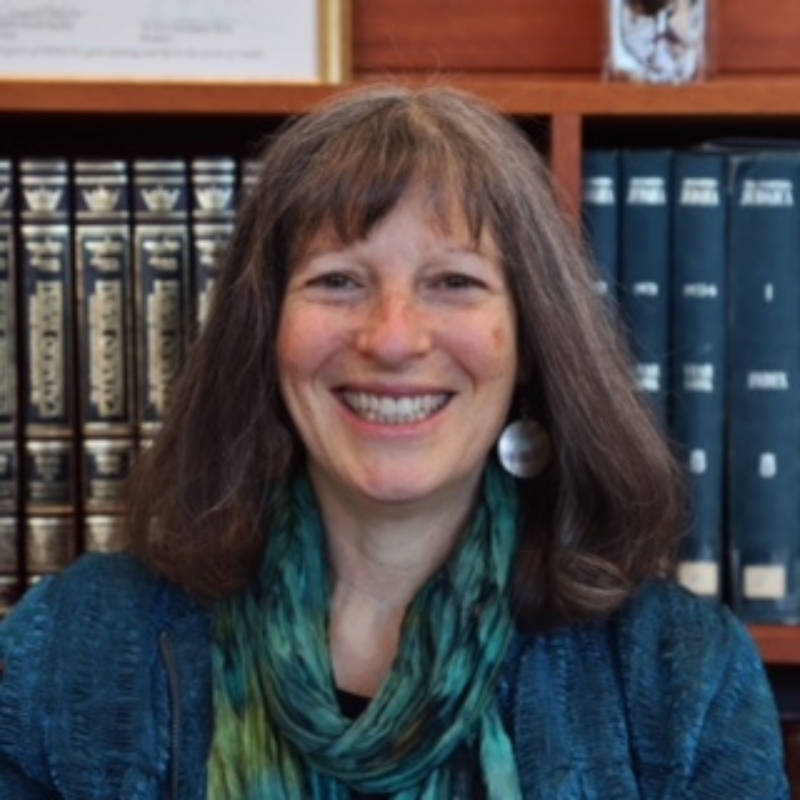Parshat Pinchas carries within it a jarring tension between two possible responses to a sense of injustice.
On the one hand, the parshah takes its name from a man who is rewarded for his violence, zealously murdering two presumed idolaters without recourse to due process.
In contrast, the parshah also presents us with the model of diplomacy exemplified by the five daughters of Zelophehad. They bring a calm and reasoned plea for justice to Moses and the assembly, who, in turn, brings their case before God. God responds that “The plea of Zelophehad’s daughters is just — Kein b’not Zelophehad.” (Numbers 27:7) Kein — Right! True! Just!
Find more resources on Pinchas.
I’ve always related to the moral indignation that the daughters of Zelophehad must have felt on behalf of their deceased father, for the dishonor done to his memory. I am impressed by their restraint as they interacted with Moses and the assembly, in such stark contrast to Pinchas’ murderous rage in response to his own moral indignation.
They stayed curious rather than reactive. They ask a question, “Why should our father’s name be lost to his family because he had no sons?” (Exodus 27:4) I prefer to think of this as a true attempt to understand, rather than as a rhetorical question. Curiosity is a great tool to have in our back pockets when we are in relationship with those with whom we disagree.
Curiosity and “being right” stand in tension with each other. These are exactly the two options that are presented to us in the parshah: Pinchas’s knee-jerk reactivity, vengeance, and self-assured “rightness” as contrasted with b’not Zelophehad’s curiosity and reasoned plea. Wild West vigilantism versus diplomacy.
As the great social scientist Brené Brown said, “I’m here to get it right, not to be right.” Getting it right is about the soul. It’s our spiritual mission statement. It’s about integrity and teshuvah, returning again and again to our best and highest selves. That’s what the daughters of Zelophehad model for me. Rather than the end justifying the means, for them, the means was far more important.
Find more commentaries on social justice, leadership, and philosophy.
In these days of fractious and polarized politics, when the path of righteous indignation and violent rage often pulls at my own heart, I pray that I may stay curious, act less like Pinchas and more like Mahlah, Noa, Hoglah, Milcah, and Tirzah. This is really where the rubber meets the road in my own spiritual life, to remain open to other points of view. A kind of intellectual humility is required, a willingness to consider information that doesn’t fit with my current thinking, to move out of my own reverberating echo chambers. In fact, this is what Moses demonstrates when confronted by the case of inheritance for daughters. He was humble enough to recognize that he didn’t have the answers, and he brought their case to God.
Pinchas was not a curious kind of guy. It is for the Pinchas-within-each-of-us that we come to notice our own trigger-points, keep tabs on our reactivity, and learn to gather more information before making snap judgments about situations or other people.
It’s hard work to treat everyone as if they have been created in the Divine Image. Sometimes it’s even hard to treat ourselves as if we’ve been created in the Divine Image.
Therefore, it is to become more like Zelophehad’s daughters that I practice curiosity. When it is time to respond, I want to do so with both strength of conviction and integrity.
In a few short weeks, we will commemorate Tisha B’Av, when actual walls came down, according to the rabbis, because of baseless hatred. As we deal with a scourge of baseless hatred in our world today — hatred against Jews, immigrants, people of color, women, the LGBTQ community, and more — what would it even look like to use curiosity as one of the tools in our spiritual toolbox? Two of my contemporary models for this kind of open-heartedness and curiosity are Matthew Stevenson, the Orthodox Jew who befriended then-Klansman Derek Black at college and helped him move away from his white nationalist roots, and Cantor Michael Weisser, who similarly befriended and then transformed a KKK leader in Nebraska.
There is no prescription, only invitation. In our broken world, may we, like Mahlah, Noa, Hoglah, Milcah, and Tirzah, put our hands to the service of hope. May we learn to channel their hope, integrity, grace, diplomacy, and curiosity.
Rabbi Pamela Wax now serves as the director of adult education and programming at Congregation Knesset Israel in Pittsfield, MA, after previously serving as a congregational rabbi, a hospital chaplain, the assistant director of adult education for the Reform movement, and for 19 years as the staff rabbi at a social service agency running a Jewish spiritual healing center. She is the author of two books of poetry, “Walking the Labyrinth” and “Starter Mothers.”

